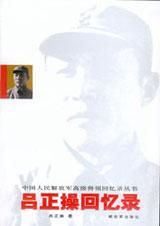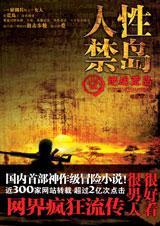Witness the legendary life of a founding general: Lü Zhengcao's memoirs
This book is the author's memoir as an army leader, a member of the National Committee of the Chinese People's Political Consultative Conference, and a Central Committee member. The book comprehensively reviews the author's arduous journey in joining the revolution. The entire book is written in oral form. Through the recollections of a generation of revolutionary figures on the grand scale of the people's liberation cause and the brilliant and magnificent past of the People's Republic of China moving forward with twists and turns, this book allows us today to re-experience that difficult yet glorious revolutionary history.
Lü Zhengcao Memoirs Part One
Haicheng is located on the eastern edge of the Songliao Plain, on the left bank of the downstream Liao River, at the northern end of the Liaodong Peninsula. To the east are the Qianshan Mountains, to the west are the Hun River, the Taizi River, and the Liao River. It has a terrain that is high in the east and low in the west, forming a pattern of mountains, hills, plains, and lowlands gradually descending from high to low. The natural conditions are excellent, with abundant resources and convenient transportation. It is thirty kilometers south of Yingkou, thirty kilometers north of Anshan, and 120 kilometers from Shenyang. Anciently known as "the important land of Liaozuo" and "the hidden area of Bohai," it has been a place fiercely contested by military strategists throughout history. Today, it is famous as the "granary of southern Liaoning."
Lü Zhengcao Memoirs Part Two
At the ferry crossing west of Xiliangdian Village, there was a large wooden boat. On this day, after the village cadres had evacuated all the villagers, they arranged for Mengquan and Wangfangchi to be on the boat, pretending to be ferry operators specifically for the enemy. On December 5th, after the 42nd District Team, the Gaoyang County Brigade, and the Third Small Team entered the village, they were respectively deployed at the crossroads, West Street, South Street, and the riverbank at the ferry crossing west of the village, agreeing to use the explosion of a hand grenade as the signal. At five o'clock in the afternoon, after Japanese puppet troops and a large number of civilian laborers returned from the "assault demonstration" at Bai Zhi, they passed through Dongliangdian, burning several houses, then rushed towards Xiliangdian in four columns. Civilian laborers were in front, the puppet troops in the middle, and the Japanese troops at the back. When the Japanese troops entered our ambush fire net, Li Huiqin shouted "fire," and the guard Zhang Zhenfeng threw a hand grenade into the enemy group.
Lü Zhengcao Memoirs Part Three
Once, members of the martial arts team and militiamen crawled to the door of the enemy's bunker to plant landmines. In winter, the ground was frozen as hard as a stone slab. They worked hard, digging a large square pit, placed the mine inside, and then waited on the opposite mountain ridge. At dawn, more than sixty Japanese soldiers and over thirty puppet troops from Sanjiao, leading a team of civilian laborers and driving a herd of donkeys carrying supplies, crossed through the forest, walked across the river beach, and entered the village. As soon as the enemy climbed uphill, the puppet troops noticed something amiss with the ground outside the bunker entrance and stopped advancing. Behind the enemy ranks, four Japanese soldiers who had previously been bombed squeezed to the front, pretending to have experience, wanting to defuse the landmine.
This article comes from the txt e-book free download website http://www.tombit.cn Original link: http://www.tombit.cn/article/html/3154.html




